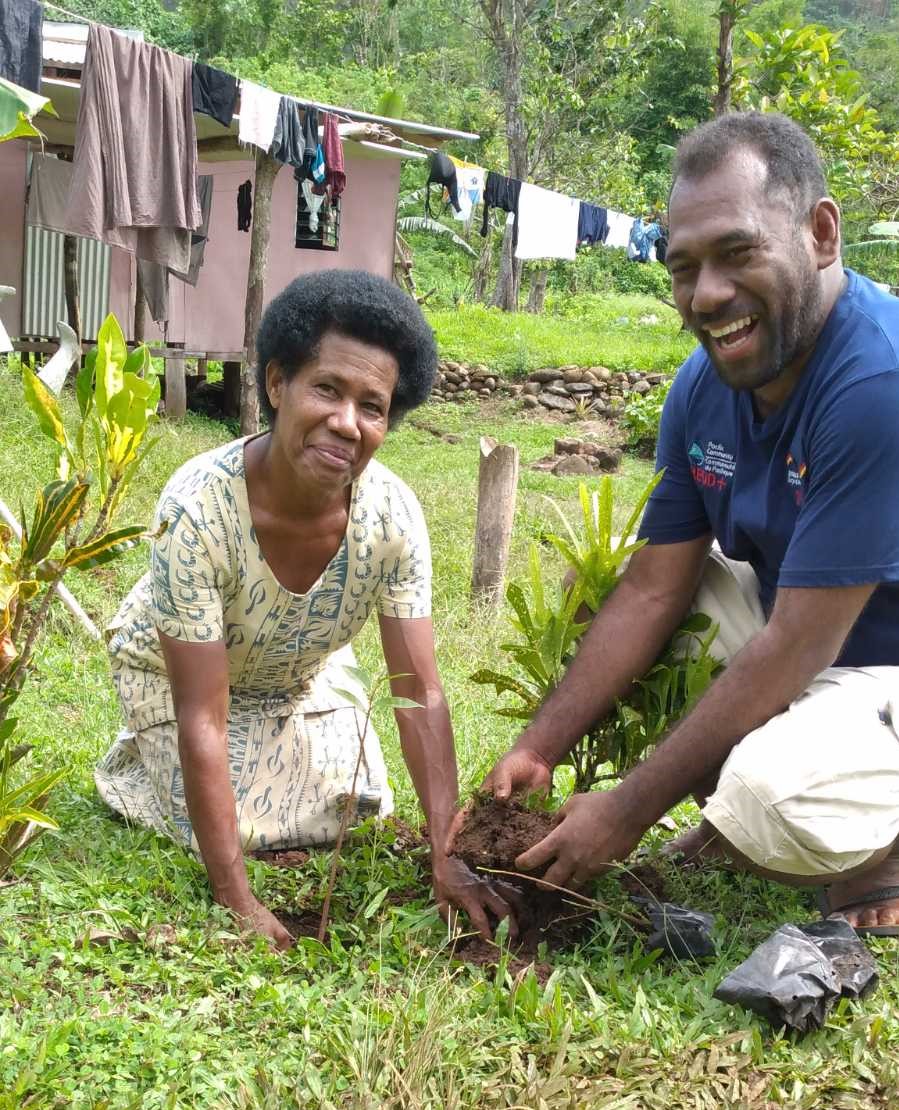
Drawa Village Sets Platform For Carbon Trade
With the vision, Sustainable Forests, our Future, the Ministry of Forestry is
grateful to its stakeholders, corporate organisations, individuals and
communities for their collective efforts in championing this objective.
This week, we highlight the sustainable and conservation
efforts of Drawa Village through the Drawa
Forest Conservation Project and the
Drawa Block. The Drawa Block is
located in Central Vanua Levu, within the provinces of Cakaudrove and Macuata
and which is made up of mountainous terrain, covered with indigenous old-growth
and secondary forest.
Working in partnership
with Live and Learn Fiji, the Drawa
Forest Conservation Project, with support from the Nakau Programme, addresses
climate change mitigation, ecosystems-based adaptation to climate change and
rural livelihoods and provides a solution to the challenge of financing
long-term maintenance of protected areas.
The Drawa project
aims to reduce carbon-dioxide emissions by changing forest management from
timber extraction to forest protection. The communities within the Drawa block voluntarily
gave land for this project almost 20 years ago and making it the first REDD+
carbon trade project to be implemented in Fiji.
Championing the cause for
sustainability and conservation, the Drawa landowners gave up their rights to
logging timber on 1549.29 hectares of their land in exchange for the opportunity
to sell rainforest carbon offsets as a way of generating revenue for local
economic development.
In a talanoa session last month at
the Grand Pacific Hotel, former school teacher and Drawa Block Forest Community
Cooperative (DBFCC) board member, Mr Aminiasi Veisaci reflected on the community
experience of the Drawa Project.
“I know our forefathers made the right decision 20 years ago, when they gave
some of our land for the Project and I thank our village leaders at the time
for their foresight,” Mr Veisaci said.
“Our forests have not been touched since that decision was made to have our
village be a model for forest reserve”.
Proving that sustainable forests is
definitely for the future, the current generation of Drawa villagers were able
to reap the rewards of their forefathers conservation efforts when in May 2018,
they became the first village in Fiji to trade carbon under the voluntary
carbon market. The eight landowning units received $20,700 in proceeds
from the trade. Mr Veisaci said that since 2018, they have continued to been receive
payments for eco-system services (PES) for their steadfast efforts in
conserving their forests.
In January 2021, Fiji became the first small island developing state (SIDS) to
sign an Emission Reductions Payment Agreement (ERPA) with the Forest Carbon
Partnership Facility (FCPF).
FCPF is a global partnership of
governments, businesses, civil society, and Indigenous Peoples focused on
reducing emissions from deforestation and forest degradation, forest carbon
stock conservation, the sustainable management of forests, and the enhancement
of forest carbon stocks in developing countries, activities commonly referred
to as REDD+.
The FCPF works with 47 developing countries across Africa, Asia, and
Latin America and the Caribbean, along with 17 donors that have made
contributions and commitments totaling $1.3 billion. The FCPF supports REDD+
efforts through its Readiness and Carbon Funds.
Minister of Economy Aiyaz
Sayed-Khaiyum had signed the landmark agreement with FCPF a global
partnership housed at the World Bank, that will unlock up to US$12.5 million
(approx. FJ$26 million) in results-based payments for increasing carbon
sequestration and reducing emissions from deforestation and forest
degradation.
The five-year agreement will reward
efforts to reduce carbon emissions from deforestation and forest degradation
under Fiji’s ambitious emission reductions programme and both the Ministry of
Economy and the Ministry of Forestry will have lead roles in this initiative.
In signing the agreement, Minister
Sayed-Khaiyum said the emission reduction programme area includes
over 37,000 hectares spread over 20 districts on the islands of Viti Levu,
Vanua Levu and Taveuni, with the potential to expand to other areas that
express interest.
“The contracted volume of
greenhouse gases that Fiji is expected to sequester from these forest
activities in the next five years is 2.5 million tonnes, for which a
result-based payment of USD 12.5 million will be paid upon verification by the
World Bank,” Mr Sayed-Khaiyum said.
Typical approaches to
forest protection often fail if they do not address the need for income
generation that can replace the ‘opportunity cost’ of rejecting unsustainable
developments. As part of the Nakau Programme, the Drawa project demonstrates
the potential to finance forest protection and all of its associated
co-benefits through production and sale of carbon credits.